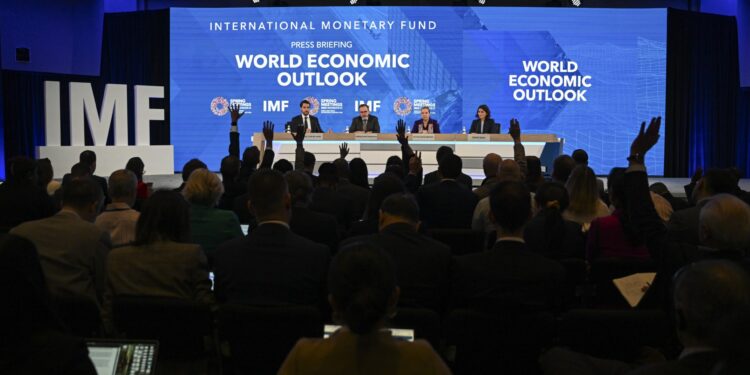Global economic policy makers breathe this week during the Spring meetings of the International Monetary Fund and the World Bank in Washington, amid indications that the US economic system led by the United States for 80 years has not yet been collapsed, despite the direction of US President Donald Trump isolation.
Although the talks were largely focused on commercial tensions, Washington’s statements that showed a trend towards calming relations with China have added an atmosphere of cautious relief between the governors of the central banks and the participating finance ministers.
Cautious relief in international circles
Talks with dozens of international officials revealed a general satisfaction of Trump’s retreat from his previous threats to dismiss the President of the Federal Reserve (US Central Bank) Jerome Powell, who had previously described him as a “great loser.” Many believe that Powell – the guardian of the dollar’s status as a global backup currency – represents a guarantee of the stability of the international financial system.
Some officials also found a positive aspect in the call of US Treasury Secretary Scott Besent to reshape the IMF and the World Bank in line with the priorities of the Trump administration, considering that this means that the United States does not intend to withdraw from the institutions that contributed to its establishment during the Bretton Woods conference in 1944.
“This week was like a cautious breathing,” said Robert Holsman, the governor of the Central Bank of the Central Bank.
The absence of alternatives and deepening dependence on the dollar
Despite the reservations, policymakers realize that the world does not have a ready alternative to replace the United States as a dominant financial power.
Despite the gains achieved by the euro, which represents the second largest global backup, officials assured Reuters that the unified European currency is still far from the dollar competition. With the exception of Germany, the eurozone countries lack the size and credit rating required to attract safe investments, and repeated political and financial crises, especially in France recently, raises doubts about the sustainability of the European project.
As for Japan, its economy is smaller than playing this role, while the Chinese “yuan” is still subject to strict central management, which weakens its ability to be a global alternative.
In front of the challenges of survival
Officials warn that the World Bank and the World Bank will not be able to continue without supporting the United States, which is the largest contributor to them. “The United States is very necessary for the survival of multilateral institutions … and we are happy that it has not withdrawn,” said Polish Finance Minister Andre Domsky.
However, despite this temporary satisfaction, the participants realize that returning to the previous situation is no longer possible, especially with the continued dependence of American companies in vital areas, such as payment systems via cards and satellite services.
Some analysts believe that the recent disturbances in the financial markets, which witnessed a sharp decline in the value of bonds, stocks and dollars, may have contributed to the Trump administration to change its approach.
“When Trump talked about the dismissal of Powell, the market’s reaction was violent enough to remind the administration that bypassing this line will have very serious repercussions,” said Nathan Chts, the City Group’s chief economist at City Group.



